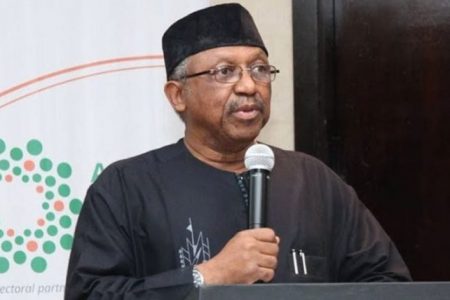FG tasks health workers against medication errors
The Federal Ministry of Health has enjoined health workers to ensure best practices to avoid medication errors in patients. The Minister of Health, Dr Osagie Ehanire, stated this during an awareness walk organised by the World Health Organisation (WHO) in collaboration with the ministry to mark this year’s World Patient Safety Day in Abuja, themed […]

Osagie Ehanire
The Federal Ministry of Health has enjoined health workers to ensure best practices to avoid medication errors in patients.
The Minister of Health, Dr Osagie Ehanire, stated this during an awareness walk organised by the World Health Organisation (WHO) in collaboration with the ministry to mark this year’s World Patient Safety Day in Abuja, themed ‘Medication Safety, Medication Without Harm’.
Represented by the Director of Hospital Services, Dr Adebimpe Adebiyi, he said erring health workers will face sanctions.
CSOs decry abuse, stigmatisation of persons with disabilities in Osun
Media Trust trains reporters on multi-platform investigative journalism
He said, “Once any of the malpractices are reported to the regulatory bodies, for example, the Medical and Dental Council of Nigeria (MDCN), there is an investigative panel and a tribunal for cases of malpractice. Anyone found wanting will be sanctioned according to the law.”
He also warned Nigerians against self-medication, saying it has a lot of health implications.
“We are sensitising the entire populace that it is not enough for you to have a headache and you go and grab paracetamol or Panadol from the pharmacy. Yes, it is an over-the-counter medication, but you still need to know the underlying condition.
“It is important to be examined by a healthcare professional and diagnosed so that the correct medication can be given to you,” he said.
The Deputy Vice-Chancellor Academic, Federal University of Health Science, Otukpo, Prof. Stephen Abah, said the country was presently drafting policies on patient safety.
He said there is a need to empower patients, individuals and families, so that they can ask the right questions about the kind of medications they are being given.
He added that policy was required to drive the actions of regulators, governments, individuals and stakeholders.
Ehi Eden, a patient safety ambassador at the Patient Safety Movement Foundation, said it was important for patients and relatives to know the name of the drug they are given in order to say what they took in case of contraindications.
